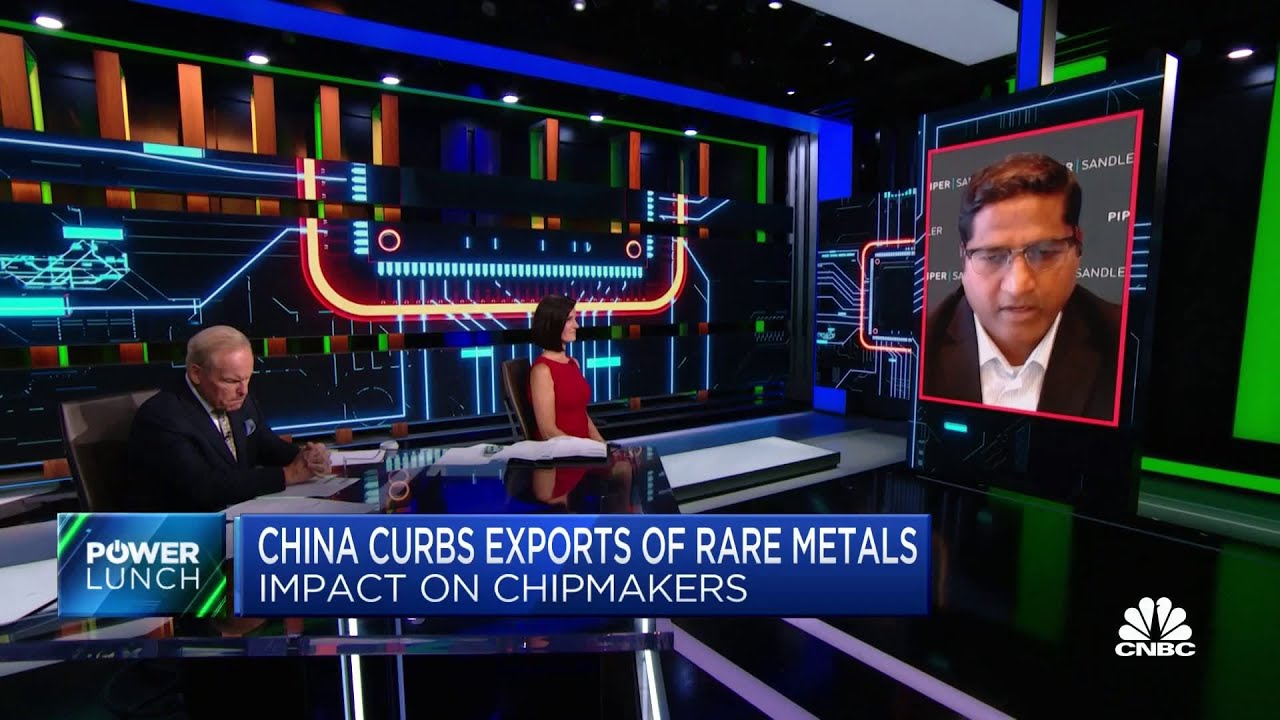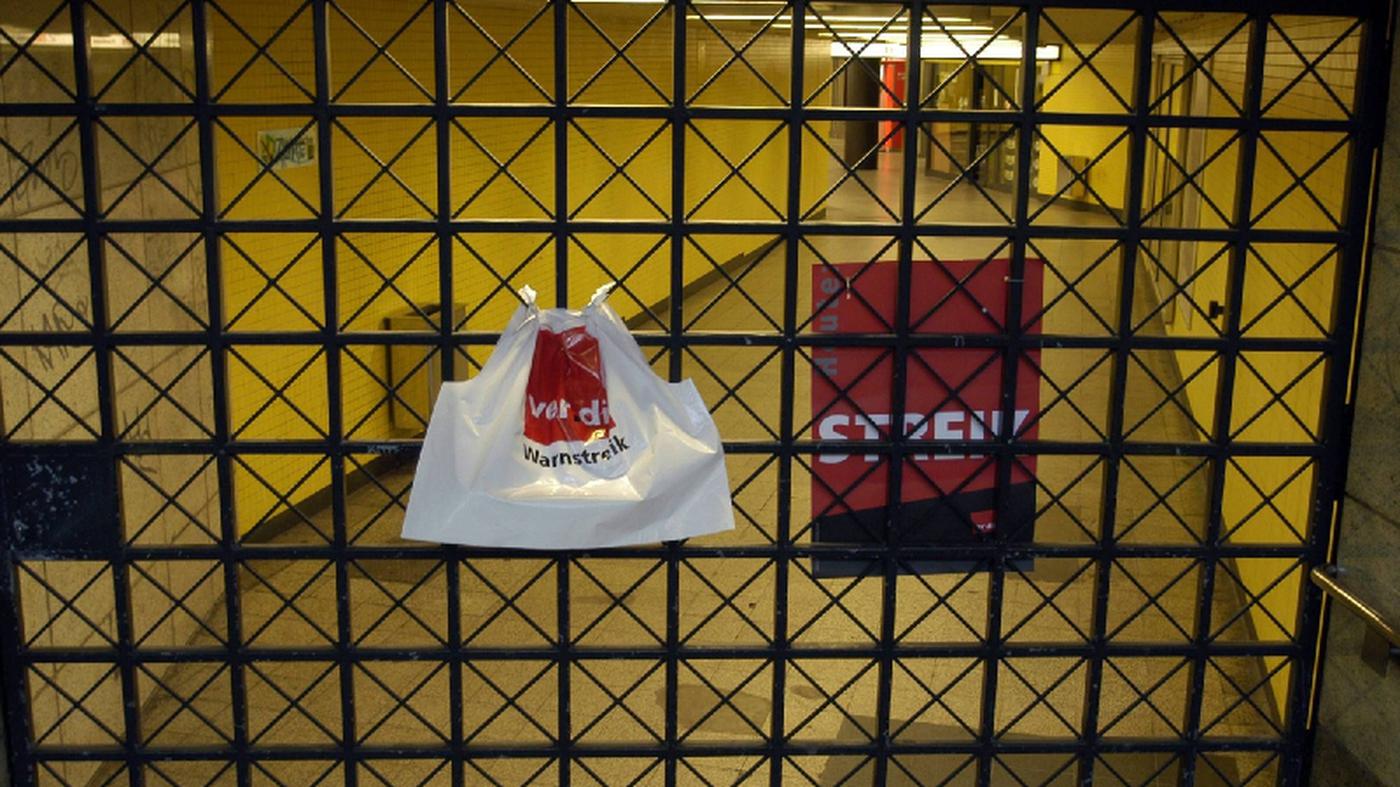Congo's Cobalt Export Restrictions: Implications For The Global Supply Chain And Market Prices

Table of Contents
DRC's Cobalt Dominance and its Economic Significance
The DRC is a global powerhouse in cobalt production, controlling an estimated 70% of the world's supply. This dominance makes the country's cobalt industry incredibly significant to its economy. Cobalt mining contributes substantially to the DRC's GDP, providing employment for hundreds of thousands of people, both directly in mines and indirectly in related industries like transportation and processing. The DRC government's consideration of export restrictions stems from a desire to secure greater domestic benefits and increase value-added processing within the country, rather than simply exporting raw materials. This strategy aims to boost the national economy and create more high-skilled jobs.
- Percentage of global cobalt supply from DRC: Approximately 70%
- Economic contribution of cobalt mining to the DRC's GDP: A significant, albeit fluctuating, percentage, representing a crucial pillar of the national economy.
- Number of jobs directly and indirectly related to cobalt mining: Hundreds of thousands, impacting numerous communities across the DRC.
Impact on Global Cobalt Supply Chain
If the DRC implements cobalt export restrictions, the global supply chain will face significant disruption. A shortage of cobalt could ensue, leading to price volatility and potentially impacting the production of various essential technologies, most notably electric vehicles. While alternative sources of cobalt exist in countries like Australia and Canada, their current production capacity is insufficient to meet the global demand, especially the burgeoning need fueled by the growing EV market. This vulnerability exposes industries reliant on DRC cobalt, such as EV battery manufacturers and electronics producers, to considerable risk.
- Key countries and companies reliant on DRC cobalt: Major EV manufacturers, battery producers, and electronics companies globally. Supply chains are often complex and involve multiple tiers of suppliers.
- Potential alternative sources of cobalt (e.g., Australia, Canada): These countries have cobalt resources, but scaling up production to compensate for DRC restrictions would take considerable time and investment.
- Estimated impact on EV battery production: Potential delays and cost increases, potentially slowing down the global transition to electric vehicles.
- Analysis of supply chain resilience and diversification strategies: Companies are actively exploring diversification strategies to reduce reliance on a single source of cobalt, including exploring recycling options and developing alternative battery technologies.
Fluctuations in Cobalt Market Prices
Export restrictions would almost certainly cause significant fluctuations in cobalt market prices. In the short term, we could expect a sharp price increase due to immediate supply constraints. Long-term effects are harder to predict but likely include sustained high prices or even periods of extreme volatility. This price volatility would impact the profitability of companies across the cobalt supply chain, from miners to manufacturers. The potential for price speculation and market manipulation is also high, adding further complexity to the situation. Ultimately, these price increases could be passed on to consumers, making EVs and other cobalt-dependent products more expensive.
- Historical cobalt price volatility data: Cobalt prices have historically been volatile, reflecting the inherent risks associated with its concentrated production and global demand.
- Analysis of the price elasticity of demand for cobalt: The demand for cobalt, particularly within the EV industry, is relatively inelastic in the short term, meaning that price increases may not significantly reduce demand immediately.
- Potential impact on the affordability of EVs: Increased cobalt prices could hinder the affordability and accessibility of EVs, potentially slowing down the adoption of this crucial technology for a sustainable future.
- Investment strategies in response to price fluctuations: Investors will need to develop sophisticated strategies to navigate the price volatility, potentially involving hedging and diversification.
Geopolitical Implications and International Relations
The DRC's potential cobalt export restrictions have significant geopolitical implications. The DRC's actions will influence its relationships with major global powers like the EU, US, and China, all of which have significant interests in securing access to cobalt. International organizations like the OECD and the UN play crucial roles in attempting to manage the cobalt supply chain sustainably and ethically. There's a potential for trade disputes and diplomatic tensions to arise as countries vie for access to this critical resource. International cooperation is key to ensuring sustainable and ethical cobalt mining practices in the DRC, fostering economic development within the country while addressing environmental and social concerns.
- Key international players involved (e.g., EU, US, China): These countries are actively involved in diplomatic efforts to manage the potential implications of Congo's cobalt export restrictions.
- Potential trade agreements and negotiations: Trade negotiations and agreements will likely play a significant role in shaping the outcome of the situation.
- Role of international organizations like the OECD and UN: These organizations are working to promote responsible sourcing and sustainable practices within the cobalt industry.
- Importance of sustainable and responsible cobalt mining practices: This is crucial not only for environmental protection but also for ensuring the long-term economic viability and social stability of the DRC.
Conclusion
Congo's potential cobalt export restrictions pose significant challenges to the global supply chain and will undoubtedly influence market prices. Understanding the DRC's motivations, the complexities of the global supply chain, and the potential for market volatility is crucial for businesses, policymakers, and consumers alike. Staying informed on the evolving situation regarding Congo's cobalt export restrictions is vital for navigating this complex landscape and making informed decisions. Further research into alternative sources and sustainable practices is essential to mitigating the potential risks associated with Congo's cobalt export restrictions. Monitoring developments related to Congo's cobalt export restrictions and their impact on the global market is crucial for all stakeholders.

Featured Posts
-
 Menendez Case New Developments And Potential Resentencing
May 15, 2025
Menendez Case New Developments And Potential Resentencing
May 15, 2025 -
 0 1 Portugal Derrota A Belgica Resumen Y Mejores Momentos
May 15, 2025
0 1 Portugal Derrota A Belgica Resumen Y Mejores Momentos
May 15, 2025 -
 Carneys Cabinet Picks Key Business Leaders To Watch
May 15, 2025
Carneys Cabinet Picks Key Business Leaders To Watch
May 15, 2025 -
 Maple Leafs Vs Blue Jackets Prediction Picks And Odds For Tonights Nhl Game
May 15, 2025
Maple Leafs Vs Blue Jackets Prediction Picks And Odds For Tonights Nhl Game
May 15, 2025 -
 Keine Streiks Mehr Bei Der Bvg Details Zur Endgueltigen Tarifeinigung
May 15, 2025
Keine Streiks Mehr Bei Der Bvg Details Zur Endgueltigen Tarifeinigung
May 15, 2025
